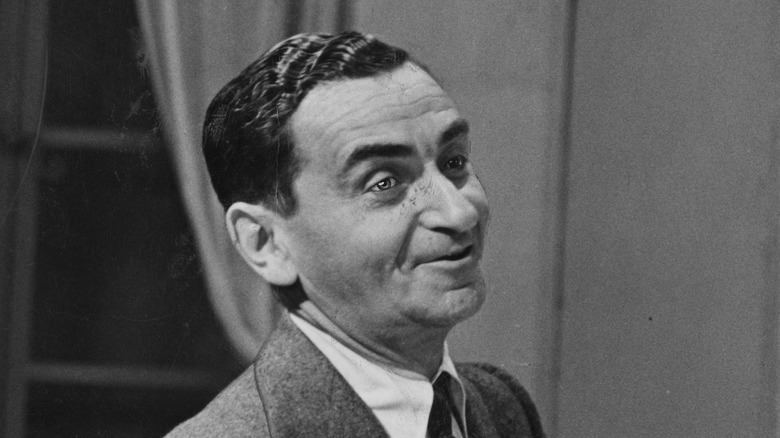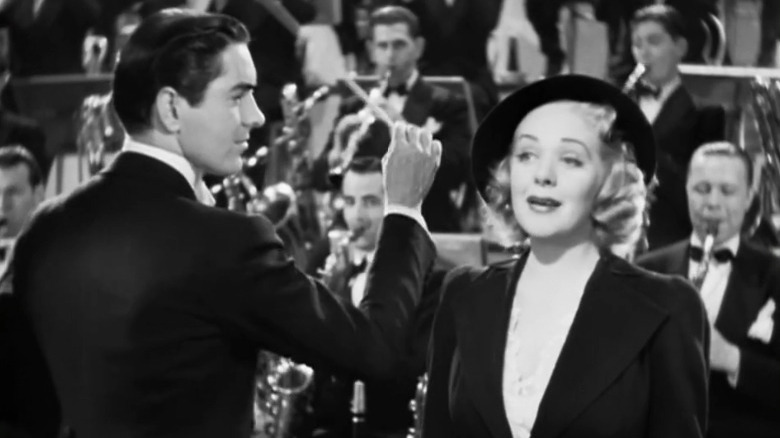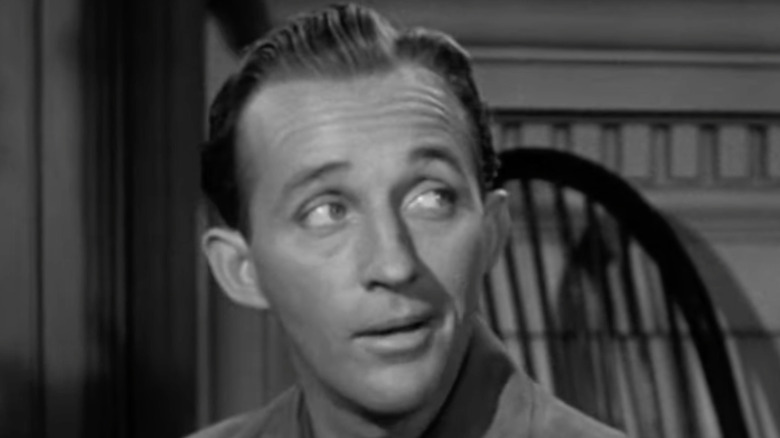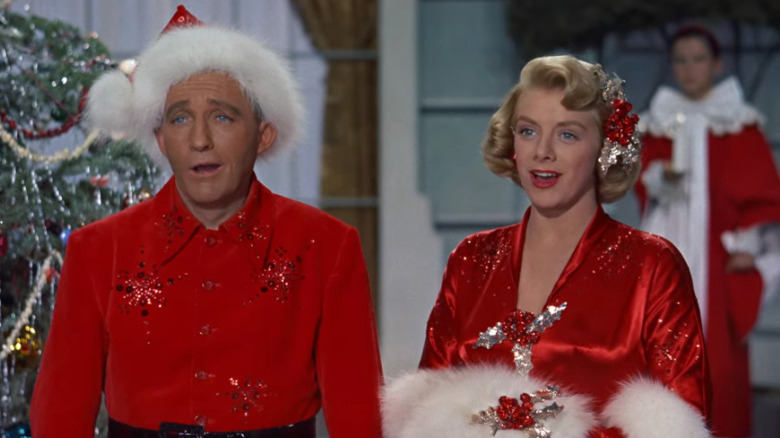Irving Berlin Won An Oscar For The Song 'White Christmas' And Presented The Award To Himself
The Academy Awards are a lot of things. A celebration of cinema? Check. A surprisingly effective way to bust unions? Double check, sadly.
But one thing they also are, and it's hard to dispute this, is an opportunity for the people in the motion picture industry to pat themselves on the back. For nearly 100 years, the Academy Awards have given out little statues, usually gold (in World War II they were plaster), to artists working in a variety of fields. Actors, sound designers, writers, visual effects artists, editors, cinematographers, directors, and many more get to declare who in their industry didn't just do a good job this year, but who also deserves a little trophy for their efforts.
Making movies is a hard job, and nobody's saying the members of the Academy shouldn't get to honor the work of their peers. But there's only one time in history when the Oscars gave someone the rarest opportunity of all, the ultimate act of self-congratulation.
Let's talk about the only person in Academy Awards history who got to present an Oscar to themselves.
Irving's ragtime band
Irving Berlin is one of the most prominent songwriters in American history, having composed a staggering number of iconic, blockbuster tunes that seem destined to outlive him. So far, they very much have.
If you're unfamiliar with Irving Berlin's name, the odds are remarkably good that you know at least some of his compositions, which include (but are nowhere near limited to) "There's No Business Like Show Business," "God Bless America," "Cheek to Cheek," "Anything You Can Do (I Can Do Better)", and "Puttin' on the Ritz."
Berlin's hit song "Alexander's Ragtime Band," which was published when he was just 22 years old, was once the best-selling song in history. It not only helped popularize a genre of music, but it also inspired a blockbuster musical of the same name: "Alexander's Ragtime Band" starred Tyrone Power, Alice Faye, Don Ameche, and Ethel Merman, and was nominated for Best Picture at the 11th Academy Awards.
"Alexander's Ragtime Band" earned Berlin two Oscar nominations, for the original song "Now It Can Be Told" and his contribution to the film's story. But he wouldn't win either award in 1939. He would eventually be nominated for nine Academy Awards over the course of his lifetime, but his one and only win would come four years later.
It was easy. All he had to do was compose the best-selling song in music history.
Again.
The song that went quinquagintiple platinum
The song "White Christmas" sold so many copies that there literally isn't a word to describe it.
If you sell a million copies, you go platinum. If you sell two million copies, you go double platinum. If you sell eight million copies, you go octuple platinum. If you sell 50 million copies, you literally have to look up the rarely-used Latin prefix for "fifty" and make up a whole new terminology: "quinquagintiple platinum." (You're welcome, future dictionary writers.)
And that's just the original Bing Crosby version of "White Christmas." If you include the many, many covers that have been recorded over the last 80 years, and the versions that have appeared on other albums (as opposed to singles), the number is closer to 100 million.
The song originally appeared in the 1942 musical "Holiday Inn," which starred Crosby and Fred Astaire as song-and-dance men in a strained friendship who perform musical acts at a rustic inn which is, fittingly enough, only open on holidays. For every new holiday that comes along, Crosby and Astaire's characters concoct new numbers and dance routines, as they also sort out their complex relationship and their respective love lives.
The movie was a financial success, although the song performed in blackface is exceptionally hard to watch. Nevertheless, the song "White Christmas" succeeded beyond anyone's rational expectations. Not only would the song go on to sell over quinquagintiple million copies, it also inspired the hit 1954 blockbuster musical "White Christmas," which likewise features the song and also stars Bing Crosby, but is otherwise unrelated to "Holiday Inn" (and, thank goodness, it's also not as racist).
Which brings us to, at last, another of Irving Berlin's singular accomplishments.
And the Oscar goes to...
Irving Berlin won his only Oscar at the 15th Academy Awards, held in 1943. He was nominated twice that night for "Holiday Inn," in the categories of "Best Original Motion Picture Story" (he lost) and "Best Original Song" (we're getting to that).
It was a historic day for the Academy Awards. There was a four-way tie for Best Documentary, which, as you can imagine, isn't a common occurrence, and "Mrs. Miniver" star Greer Garson's acceptance speech is still considered the longest in Oscars history.
Then there's Berlin, who took to the stage to announce the "Best Original Song" nominations and winner. Berlin's "White Christmas" was one of a whopping ten nominees that year, alongside "Love is a Song" from the animated classic "Bambi" and the classic duet "How About You?" from the Judy Garland/Mickey Rooney musical "Babes of Broadway."
When Berlin opened the envelope to reveal the winner, according to the Los Angeles Times, he said the following: "I'm glad to present the award. I've known him for a long time."
Even in a moment of superlative victory, Irving Berlin played it smooth. Just like a piano.
To this day, no other performer has given an Oscar to themselves, and the opportunity certainly doesn't seem to present itself very often, so the odds of it ever happening again are slim.
But you never know. One of these years, the Academy may once again find themselves feeling a little (ahem) cheek to cheeky.



